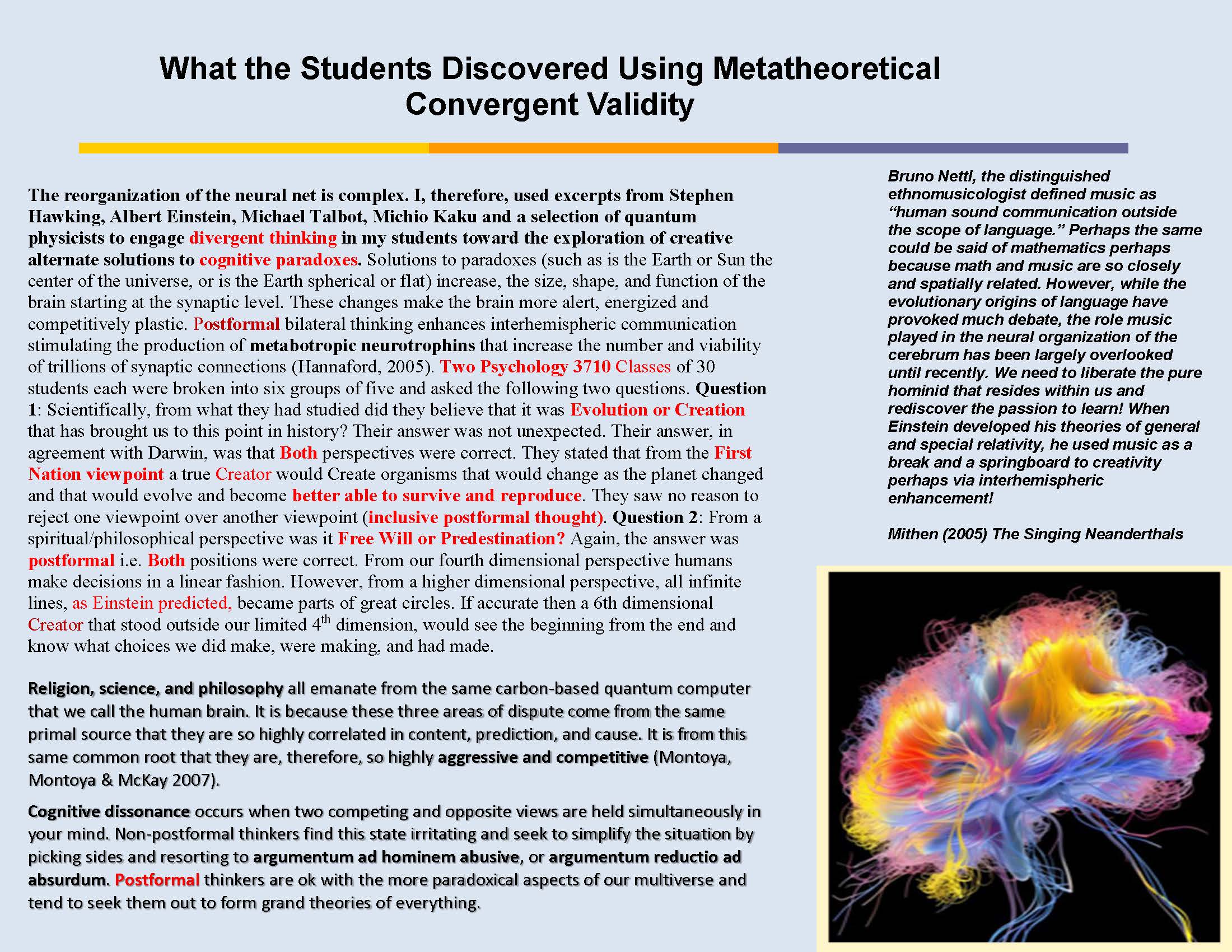“Indigenizing Darwinian Evolutionary Science Using Intelligent Design and AI” At Darwin’s Prodding: Psychology Takes the Transdisciplinary Initiative
Poster Author(s):
Abstract 1: In 2024, I authored a book on Motor Disorders for my new Psychology 3710 Special Topics Course at TRU. This free textbook was unique in its integration of indigenized creation-based stories with scientific content to reassess critical thinking concerning brain-based function and dysfunction. I also gave local student artists, writers, and editors the opportunity to co-publish. The project leveraged intelligent design as a framework to enhance student engagement through inclusion and respect for diverse worldviews. The writing and evaluation process incorporated advanced AI tools (Chat GPT-5, Google, and Alexa), from content generation to resource curation.
Abstract 2: The reorganization of the neural net is complex. I, therefore, used excerpts from Stephen Hawking, Albert Einstein, Michael Talbot, Michio Kaku and a selection of quantum physicists to engage divergent thinking in my students toward the exploration of creative alternate solutions to cognitive paradoxes. Solutions to paradoxes (such as is the Earth or Sun the center of the universe, or is the Earth spherical or flat) increase, the size, shape, and function of the brain starting at the synaptic level. These changes make the brain more alert, energized and competitively plastic. Postformal bilateral thinking enhances interhemispheric communication stimulating the production of metabotropic neurotrophins that increase the number and viability of trillions of synaptic connections (Hannaford, 2005).

